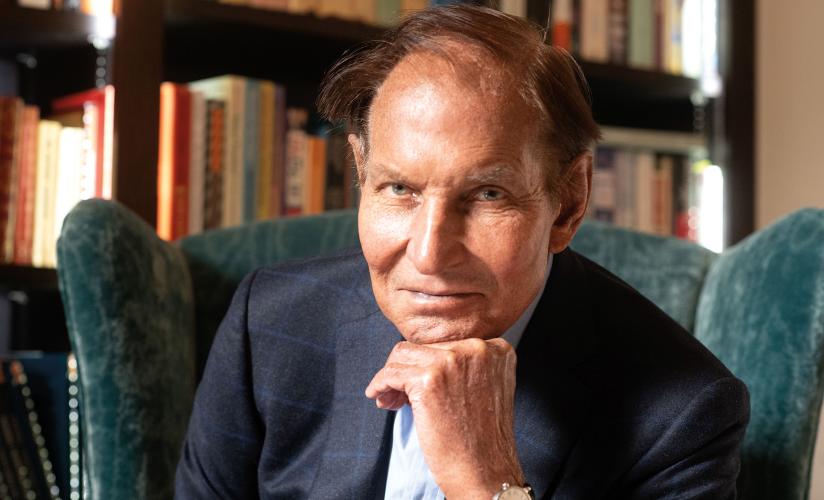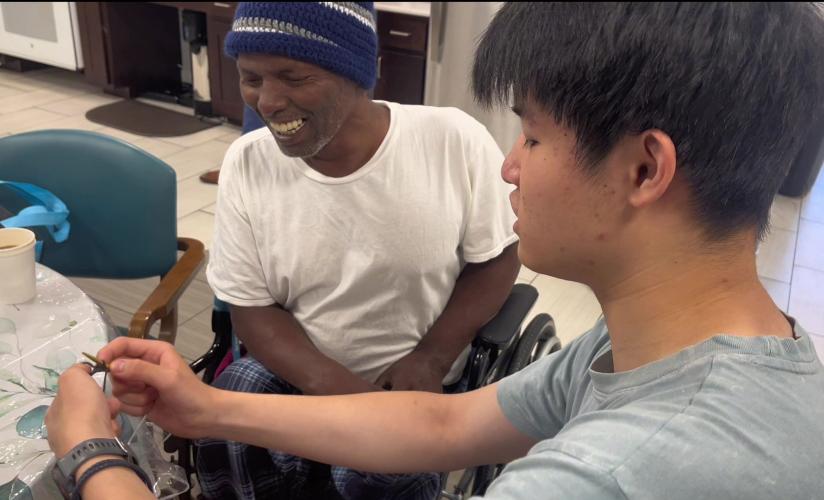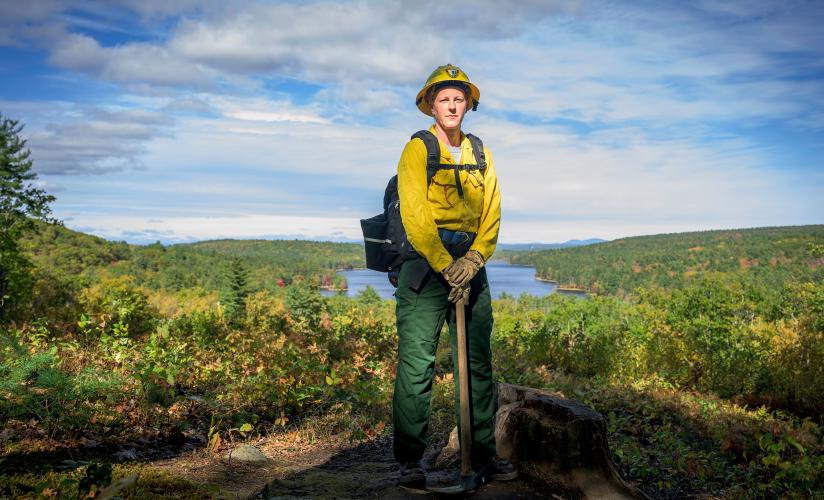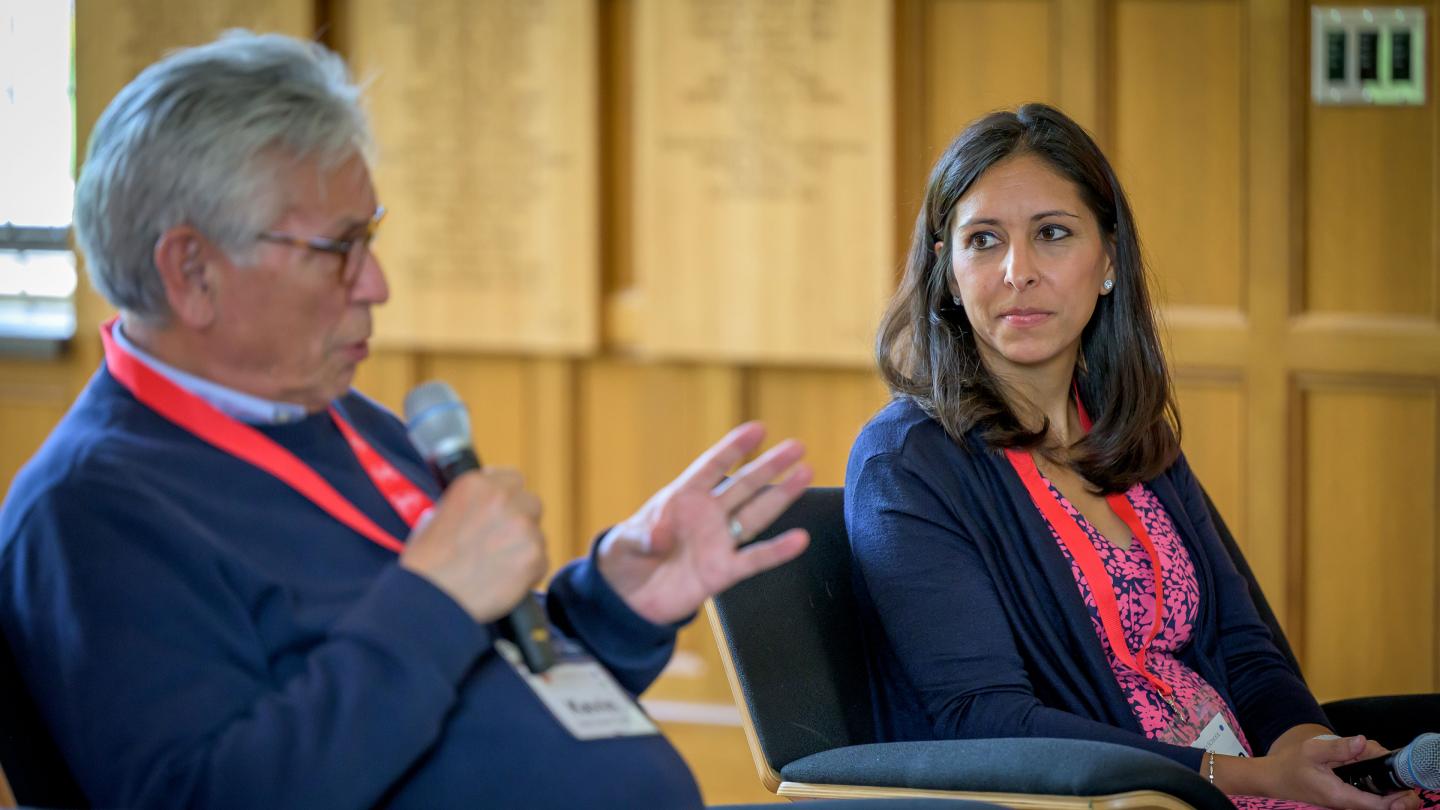

Anniversary Weekend panel event touches on careers in the public sphere and the role of collaboration.
BY JACQUELINE PRIMO LEMMON
The notion of service to others is woven into the very fabric of St. Paul’s School, from a School Prayer that exhorts us to be “eager to bear the burden of others” to a mission squarely focused on educating students to build purposeful lives in service to the greater good. Following panel conversations earlier in the year focused on nonprofit leadership and the arts, during Anniversary Weekend SPS wrapped up its examination of what it means to live a life in service with a conversation among reunion attendees working in the art, health and legislative sectors: Kevin Gover ’73, undersecretary for museums and culture at the Smithsonian and former director of the National Museum of the American Indian; Rebecca Haffajee ’98, principal deputy assistant secretary for planning and evaluation in the U.S. Department of Health and Human Services; and John Cronin ’08 a Massachusetts state senator and former U.S. Army officer.
The standing-room-only event, held in the Friedman Community Center’s Raffini Commons on Saturday, June 10, was moderated by Rector Kathy Giles, and the wide-ranging conversation touched on everything from the reclamation of Indigenous artifacts to military service to the social systems that factor into substance abuse. Early in the conversation, Giles noted that while our School Prayer calls on us to be eager to bear the burdens of others, it does so — “conspicuously,” she said — without defining or limiting who those “others” are. “How do you approach collaboration with people who have widely different points of view from your own?” she asked the panelists.
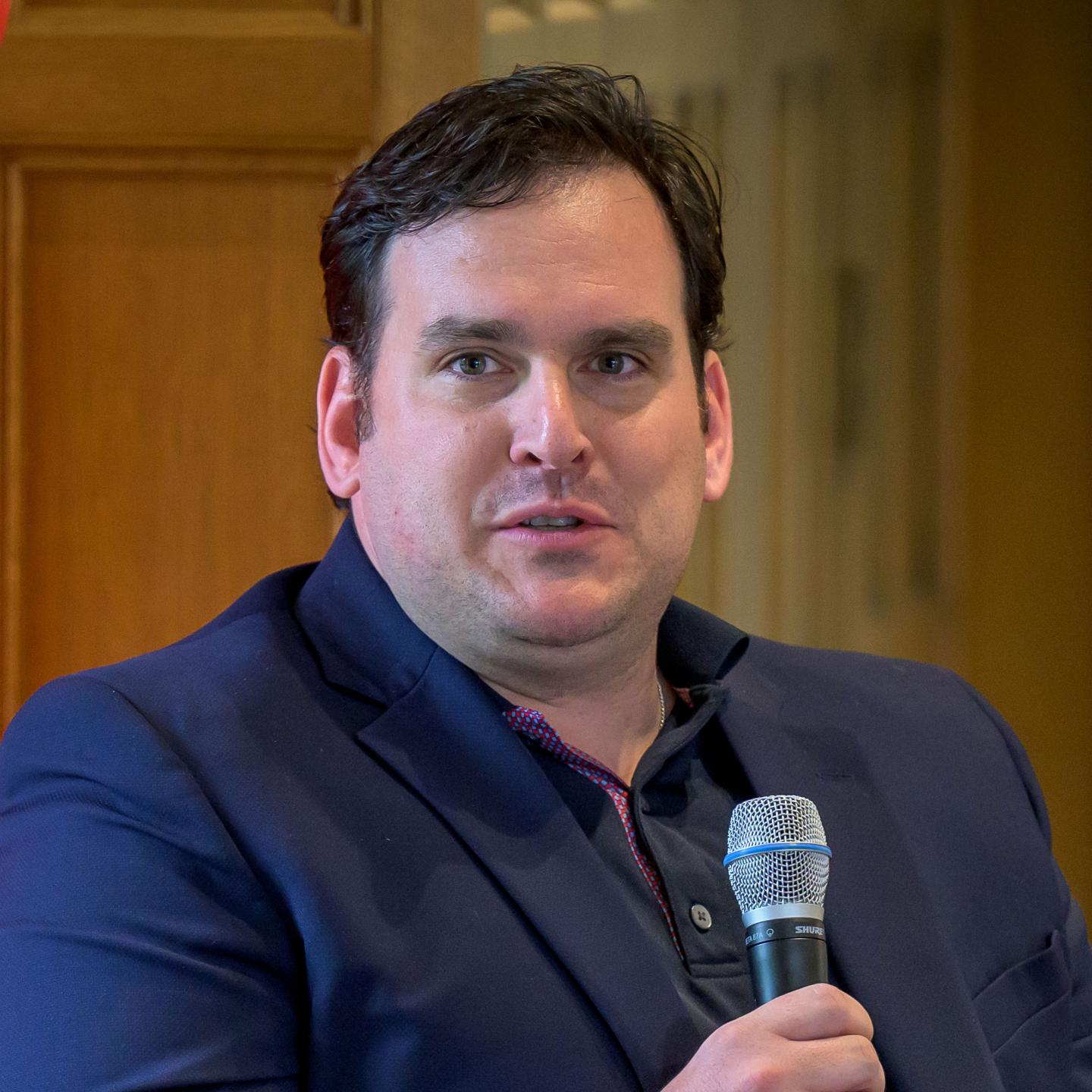
Public service is really noble and really honorable … We should be encouraging young people to run for public office.”
Haffajee, who became interested in health policy as an undergraduate at Duke and now focuses her research and policy work on issues related to substance abuse and the U.S. overdose crisis, agreed that Giles’ question reflects a very real challenge. “But how I approach it is by listening a lot and respecting other people’s points of view,” she said. Even if you end up staying confident in your position, she continued, at the end of the day you learned something from someone else and had the opportunity to consider a new perspective.
Cronin, who attended St. Paul’s School while the U.S. was engaged in the war in Iraq and attended college at West Point, said that having something in common — a shared goal, experience or, in his case, a military oath — boosts camaraderie and collaboration. “I think of my infantry platoon that I served with 10 years ago. I don’t know if they’d vote for me, but I know we could sit down and have a beer and be proud of the work we did together. I think we’ve got to get toward that as a country somehow,” he said.
A citizen of the Pawnee Tribe of Oklahoma, Gover noted that he hadn’t as much pursued the idea of public service as selected a cause — the empowerment of the Native American Nation — that inevitably brought him into the sphere of service; working in roles in which communication and collaboration are critical to success. Among the Princeton grad’s other responsibilities today is ensuring the return of items from the Smithsonian’s 21 museums to the Native tribes from which they were taken. “Now, museums across the country and throughout the world are examining their collections and saying, ‘Should we really have this? And what are our obligations to the communities where this material originated?’” he said.
Near the end of the discussion, Gover used a football analogy to emphasize that work in the public sector is important, no matter the size of the role: Everybody wants to be the quarterback, but there’s equal nobility in being one of the blockers that helps the quarterback score the touchdown. In conjuntion with the comment, his mention of Cliff Gillespie P’79,’81, the late SPS faculty member, science teacher and coach who was well known for his sports analogies, brought chuckles and murmurs of appreciation from the crowd.
“Public service is really noble and really honorable,” said Cronin. “We should be encouraging young people to run for public office.”

